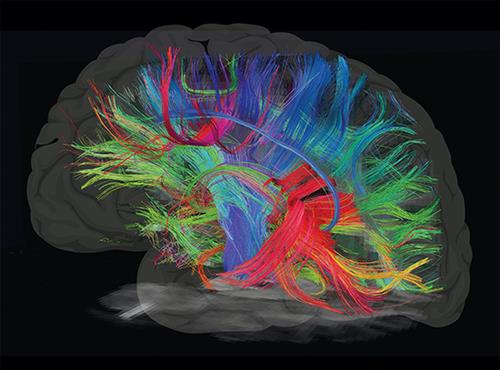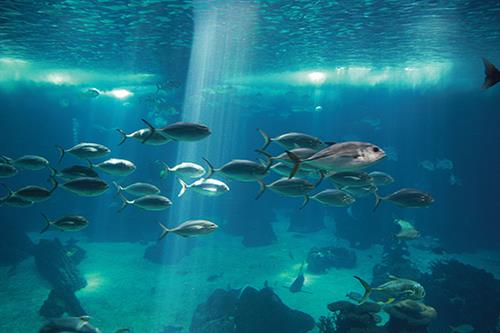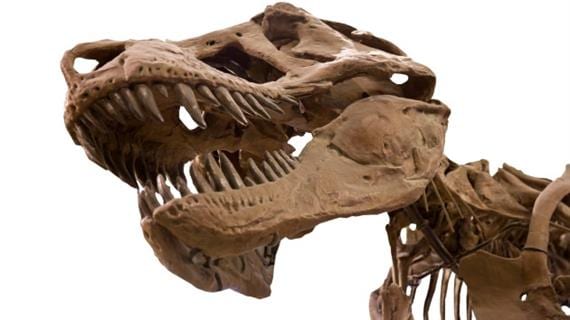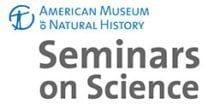Science teachers: Back-to-school learning isn’t just for your students! Check out the American Museum of Natural History’s (AMNH) Seminars on Science. These are six-week online courses taught by educators and field scientists—the ones actually unearthing dinosaur bones and classifying new species of fish. Of course, in addition to the benefits of getting grad school credit and beefing up your science knowledge, AMNH courses also offer these nine awesome back-to-school learning and professional development perks:
Learn Like a Scientist
You’ve been to some PD with the huge room, stale bagels and droning. This is not that PD. Take The Brain: Structure, Function and Evolution, for example. Each week, participants discuss a case study written by a neuroscientist that explains cutting-edge research on how the brain works. You’ll study everything from the anatomy of tiny dendrites to (relatively) huge cortexes. You’ll also learn how the brain processes everything from senses to memory to problem solving. (Imagine what you’ll learn about how your students’ brains work along the way!)

Image credit: © Van Weeden
Ask New Questions
You know those questions you’d never thought of before, but once you hear them, you have to know the answer? Like the question addressed in The Diversity of Fishes course: What is a fish? The best way to answer that is to get into the lab with the ichthyologists who are studying fish. You’ll learn that, from a scientific perspective, we are all actually fish. You’ll also learn how scientists study animal diversity. Never heard of a cladogram? You’ll know how to interpret one by the end of th is course!
Get All the Answers
Your students have questions: Why is it hotter in the South? How far away is the sun? Why are the ice caps melting? Courses like Climate Change will give you the answers to those questions and others. In this case, Curtis Ebbesmeyer, an oceanographer, uses rubber ducks and sneakers that fell off ships to trace the paths of ocean currents and to better understand climate change. The course presents the earth as a system and studies the various aspects within that system that contribute to climate change, from plate tectonics to volcanoes to more modern concerns. Also covered: how scientists are creating and using models of the earth’s system to better understand and predict climate change.
Learn Inquiry to Teach Inquiry
Science is inquiry, and the best way to teach through inquiry is to experience it as a student. For example, the majority of teachers who took the Diversity of Fishes course said that the class provided them with hands-on inquiry learning experiences they could take back to their classrooms. Coming out of an AMNH course, you’ll have created at least one inquiry-based lesson plan that you’re ready to teach.

Get the Facts
The AMNH’s Evolution course demystifies the core elements of this topic and translates it into instruction in a way that students understand. The course provides insights into the different branches of the Tree of Life to answer questions about how whales and other sea mammals evolved from land mammals, how species co-evolve, and how humans evolved. Next year, you’ll teach this tricky topic with confidence!
Get Up-to-Date
Some science topics have been in textbooks for years—Mendel, the double helix, Watson and Crick—and the textbook may stop there. That’s where a course like Genetics, Genomics, Genethics is helpful. This course delves into the topic of genetics and the subject of genethics—how new advancements in genetics are pushing ethics boundaries. It’s perfect for classrooms with students who love to debate, and you can help them tackle questions like: Should we clone humans? How should we treat Parkinson’s disease? How far is too far when it comes to using genetics to improve life expectancy? If you’re a debater yourself, you’ll get the chance to discuss genetically modified foods and the application of the Human Genome Project.
Meet Other Educators
Each course is online and includes a discussion component, so you’ll meet other teachers from across the country who want to incorporate science into their K–12 classrooms. As one middle school science teacher reflected after taking the Evolution course, “My course-mates provided some great insights into how they teach evolution in their classrooms.”
Get Lesson Ideas
You may have your science units planned, including videos, readings and discussions. These courses will provide activities that you can use with your students. Taking the course The Link Between Dinosaurs and Birds, for example, will give you tons of lesson ideas for your dinosaur unit—like having students implement techniques paleontologists use to learn how dinosaurs lived. In this course, you’ll also study a theropod fossil to learn more about how scientists use fossils to figure out what these animals’ lives were like, and you’ll learn the reason why scientists think birds descended from dinosaurs—which is especially helpful considering we can’t rely on wings and beaks as our only defining characteristics.

Image credit: © AMNH/D.Finnin
Fun Facts
If your elementary school students are fact collectors (and we know many who are!), the more facts you can give them, the happier they’ll be. Keep a list of fun facts from a course like Sharks and Rays. Sharks and rays are close relatives. They have perhaps the most complex sensory systems of all vertebrates. During this class, you’ll learn about how sharks sense and primarily hunt and catch prey, including dissecting a dogfish (a small bottom-dwelling shark) to learn about its digestive system. You’ll also start a conversation about shark conservation that you can continue in your own class. At the end of the course, you’ll feel like this middle school science teacher: “The activities fostered a lot of intense research, so by the end … you felt like an amateur expert on that particular subject.”
Have you taken an AMNH Seminar on Science course? Let us know how it went. Or check out the full list of courses and let us know which ones interest you most!

